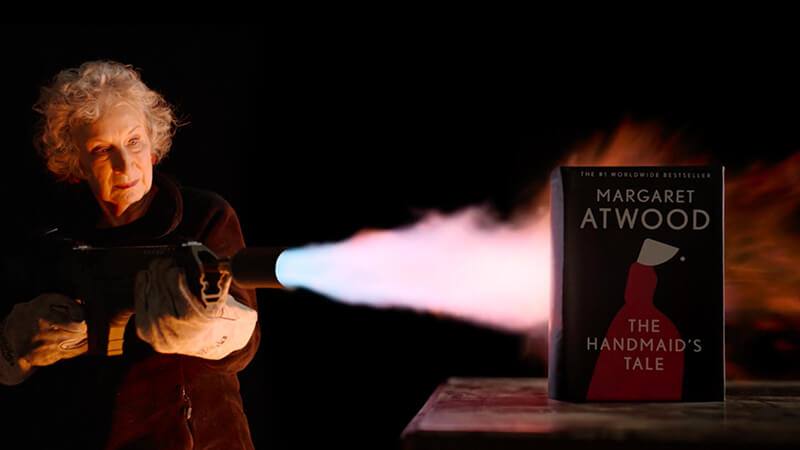The Rise Of Literary Censorship: “To Ban A Book Is To Banish An Idea”
Last year, the author Margaret Atwood commissioned a limited edition, unburnable version of her novel The Handmaid’s Tale. Since its publication in 1985, the book has been banned – or faced calls for banning – in states across the USA, as well as in countries including Portugal and Spain, on grounds of profanity, sexual content, being anti-Christian and featuring LGBTQIA+ characters. Celebrating the inflammable volume in The Atlantic, Atwood wrote, “To those who seek to stop young people from reading The Handmaid’s Tale: good luck with that. It’ll only make them want to read it more.” Made from fire-resistant paper, the unburnable book was an act of defiance; a symbol of Atwood’s reaction to banning books – be it hers or anyone else’s.

While a recent American Library Association report shows that 2022 was a record year for book banning attempts in the US, the practice has taken place for centuries. From the Bible to the Harry Potter series, motivations for banning books can be varied. Mickey Huff is the director of Project Censored, the US-based driving force behind the global Banned Books Week initiative. For him, it is about power. “Books are often targeted for suppression because they challenge societal status quo or orthodoxy,” he says. “Books that express counter-narratives to the prevailing power structures make those in power uncomfortable and reactionary instead of tolerant and inclusive.”
Daniel Gorman, director of English PEN, an organisation that champions the freedom to write and read worldwide, adds that banning books can be part of an eradication process. “The aim to ban a book is the aim to banish an idea, which in turn results in the banishing of an identity.”
However, book banning isn’t just about politics and ideology. There are also calls to ban or rethink texts that offend on grounds of misogyny, homophobia and racism. In May this year, Belfast-based student Angel Mhande called for John Steinbeck’s 1937 novel Of Mice And Men to be removed from the exam curriculum due to its use of racial slurs. In 2019, Pink News reported that a London school’s library contained books that ‘promoted intolerance and hatred towards homosexuality’, and another that ‘contained misogynistic views’. In 2018, Bangkok campaigners asked the Thai government to remove a number of textbooks from schools, including one that advised parents to ‘take their LGBT kids to psychiatrists’. Several UK universities have added trigger warnings to reading list titles, including books by Shakespeare and Jane Austen, to protect students from potentially upsetting content. And discussions continue over whether or not Roald Dahl’s works should be rewritten to remove potentially racist or sexist content.
Gorman argues that a book should never be banned – but context is everything. “Even the most extreme material should be allowed to be published in some form, and with the appropriate methods of release. There may be limited areas where the removal of content is appropriate, such as non-consensual imagery or libellous texts, but this must be clearly defined.” Huff goes further. “Banning books as a form of censorship is a sign of a crumbling democratic republic – one flirting with totalitarianism,” he says. “One shouldn’t sit back and watch such things happen. No censors. No censorship.”
Simon Coates is a London-based writer and artist whose work has appeared in publications including The New European and Scottish newspaper The National
Get the best of Service95
delivered straight to your inbox
By subscribing to our newsletter(s) you agree to our privacy policy. You can unsubscribe at any time.







